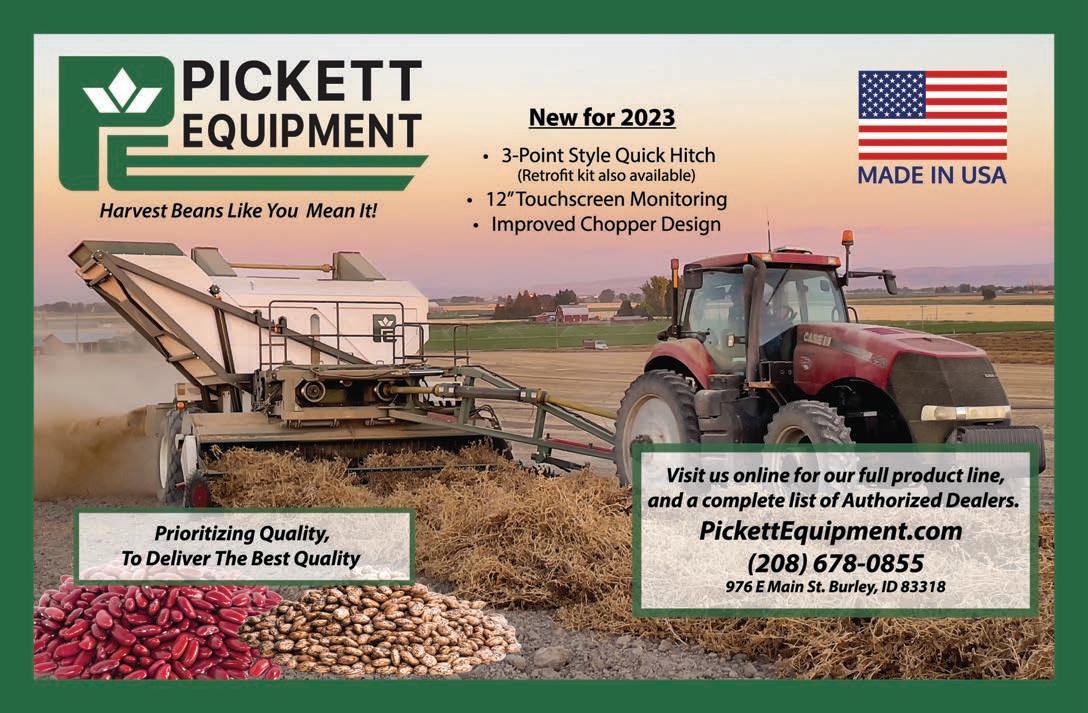
4 minute read
Expert advice smooths out generational transfer of bean, dairy farm
by agweek
By Mikkel Pates | Agweek
PERHAM, Minn. — Dry edible beans are a high-value, nutritious food for consumers. But to have future producers, there must be successful business transfers between generations.

Mark Dombeck, 76, is chairman of the Minnesota Dry Bean Research and Promotion Council and a dairy farmer. Dombeck went through his own farm transition in the 1970s and is now working to hand off a substantial enterprise to three grown children and families who joined the farm about 20 years ago.
“I went through consultants and tried to get guidance,” Dombeck said regarding the transition. “As economic times change. the younger generation has greater — or less — interest. The hardest thing for younger generations to understand is equity.
CONTINUED ON PAGE 22
CONTINUED FROM PAGE 21
They’re not making a big cash wage, but they’re building equity. You’re cash-poor and asset rich.”
Growing, changing
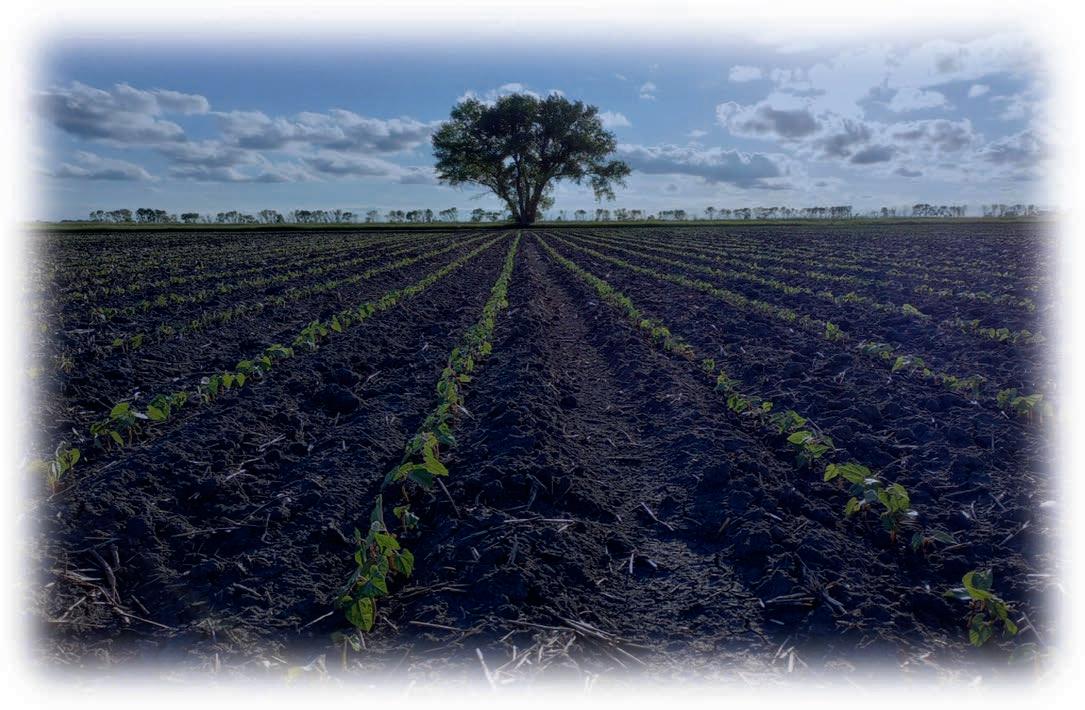
Dombeck graduated high school in 1964. His parents, John and Lottie, raised two sons and three daughters on a diversified, 280-acre farm. In his childhood days, Dombecks milked cows in a 34-head stanchion barn and ran a 30-head farrow-to-finish pig enterprise, which was dropped in the 1960s.
His older brother Mike, was drafted and served in Vietnam. Mike came home and started his own farm at Bluffton, Minnesota, 25 miles away.
Meanwhile, Mark took three years of diesel mechanic training at what is now Central Lakes College at Staples, Minnesota, and started a construction equipment mechanic job in the Twin Cities. He was drafted in 1967 and served two years in Korea. In 1970, he returned the construction job. In 1972, a fire destroyed his
CONTINUED ON PAGE 24
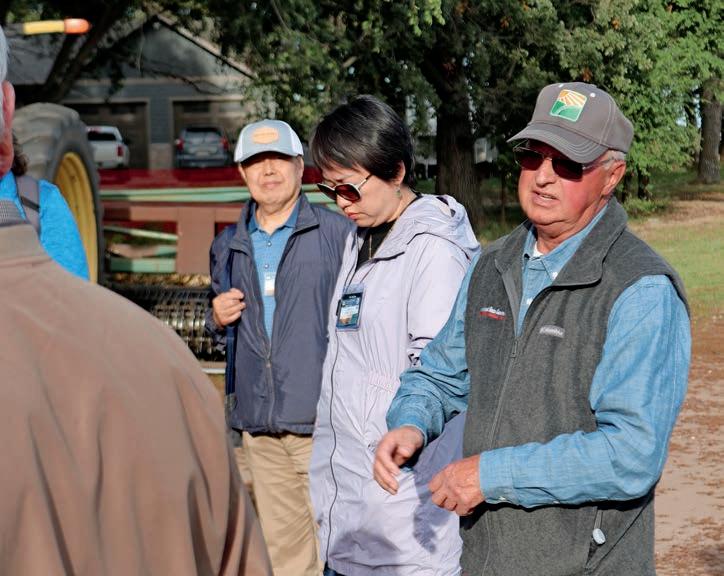

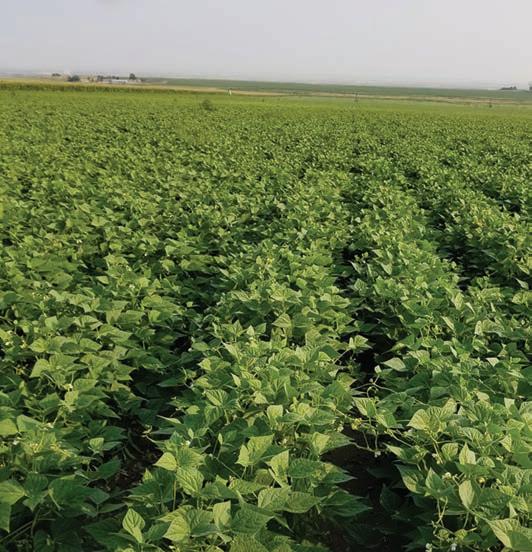

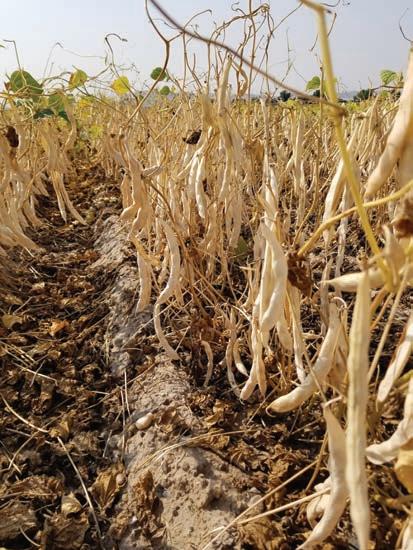
CONTINUED FROM PAGE 23 parents’ dairy barn. They rebuilt, and Mark came home to farm in 1974.
“We rented facilities and land from Dad for two years, and set up a contract-for-deed as part of the transition,” Mark said. As the farm took off, the family grew: Robert (Bob) (1975), Sarah (1977), Cheryl, (1979), and Steven (1981).
In the 1980s, commodity prices were low and interest rates were high. Mark was looking for profit and in 1986 started growing dark red kidney beans. He’s planted dark-red or light-red beans every year since. In the late 1980s, the farm started to expand acres.

In the early 1990s, the farm added more land and invested in irrigation to most of their land. Today there are 23 irrigation pivots on a farm that is 1,800 acres, plus additional land. Significantly, about 800 acres are dry beans — half dark-red and light-red kidney beans because of maturity differences.
In 1996, Mark built a dairy barn that today milks 350 cows. It has free stalls and a “double-ten” parlor that allows milking 20 cows at a time.
They sell milk to Bongard’s Premium Cheese in Perham, which is a cooperative.
In 2001, Mark ran for an open post on the dry bean council and has been on the board ever since. For the past 10 years he’s been chairman and has served on the Promotion, Communication and Research Committee.
“I wanted to learn more about research and genetics and product development — promoting dry beans for a good and healthy diet,” he said.
Plenty for all
The children started the conversation and came home, gradually. The farm has grown but “there’s plenty of work there for everybody,” Mark said.
Mark remains as the president and Bob is general manager.
• In 1997, son Bob joined full-time, after s tudying diesel mechanics in the John D eere program at North Dakota State C ollege of Science in Wahpeton. Bob and his w ife, Tiffany, have three young daughters.
Mark Dombeck went through his own farm transition in the 1970s and is now working to hand off a substantial enterprise to three grown children and families who joined the farm about 20 years ago.
Cavalier, ND – Cory Seim Phone 701-265-8328 Mobile 701-331-0539 cseim@kelleybean.com
Cavalier, ND – Curt Kirking Mobile: 701-520-0116 ckirking@kelleybean.com www.kelleybean.com
Mayville, ND – Keaton Flanagan Phone: 701-786-2997
Mobile: 701-331-2615 kflanagan@kelleybean.com
Hatton, ND – Dean Nelson Phone: 701-543-3000
Mobile: 701-238-5228 dnelson@kelleybean.com
Oakes, ND – Deon Maasjo Phone: 701-742-3219
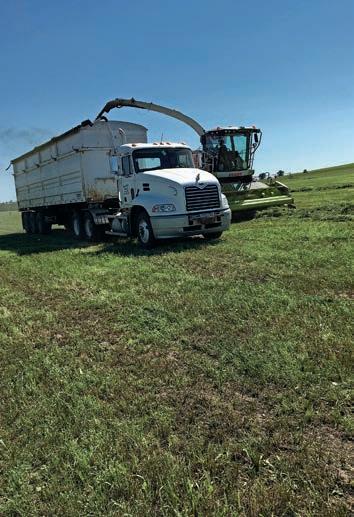
Mobile: 701-678-4384 dmaasjo@kelleybean.com
Regional Manager – John Bartsch Mobile: 612-759-5868 jbartsch@kelleybean.com
Perham, MN – Dave Hartmann Office: 218-346-2360
Mobile: 218-841-1701 dhartmann@kelleybean.com
Perham, MN – Dale Shultz Mobile: 218-371-1443
• In 2003, daughter Cheryl and her husband, Jeremy Lachowitzer, joined. Lachowitzer is an e xpert carpenter and manages facilities as well as feeding and nutrition for the dairy. Cheryl in the past two years has taken on the care of baby calves (which onc e was Mark’s responsibility). They have a son and daughter.
• In 2005, son Steven came on-board, also after diesel and mechanical education at NDSC S, and manages cropping and e quipment maintenance for the farm. He and his w ife, Elisabeth, who helps on the f arm part time, have two sons and a daughter.
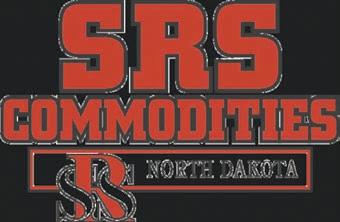
“I had a ‘policy’ for all of the kids,” Mark said. “They had to be ‘gone’ for five years. Everybody has been out to see what the rest of the world is like.”
To get financially ready for these partners, Mark had attended business transition seminars, both through AgCountry Farm Credit and the University of Minnesota. Based on expert advice, in 2000 he set up Sand Hill Dairy Inc, a corporation for the dairy cattle and equipment. Similarly, in 2010 he created Toad River Farms LLC for the land.
Mark Dombeck has worked to transition his farm to the next generation. Jed Brazier / Northarvest Bean Growers Association
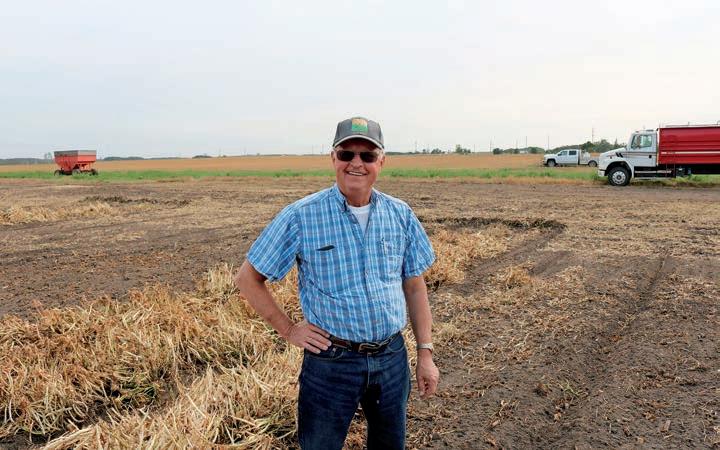
He’s gradually shifted shares of each toward the children and continues to own about 10% of each.
Also looking ahead, the Dombecks are incorporating robots to counter an evolving labor shortage. By the end of December, they planned to have put in place one feed robot and five DeLaval robots for milking — a total of about $1 million investment.
“If it was just for myself, I probably would just farm as long as I could,” Mark said. “But this is longterm investment for the next generation.” NBGA










